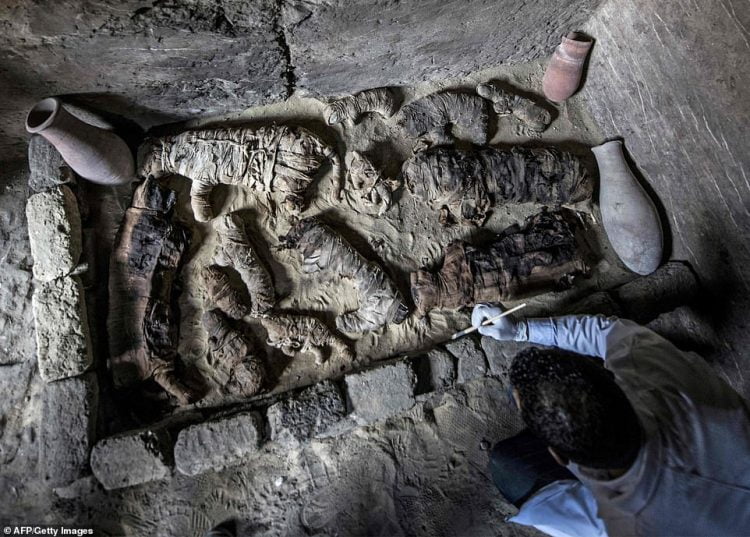It is uncivilised, disrespectful and unethical for archaeologists to dig up the mummified remains of people and their pets from ancient Egyptian sandy graves. They excitedly and eagerly want to discover another ancient coffin to inspect while apparently brushing aside the ethical issues. And this applies to domestic cats and dogs as well. Indeed any other animal, and many species of animal were buried with their owners.
 |
| 2,500 year old coffins exhumed in Egypt recently. Credits: Xinhua/REX |
As I understand it, they were buried in mummified form with their owners to accompany their owners to the afterlife. The afterlife was for eternity. They became immortal and this applies both to their owners and their pets.
What interests me, and indeed what upsets me to a certain extent, is that the intention of the people who buried these bodies was to allow them to travel to the afterlife and live there for eternity. If they are dug up and desecrated like this does it not stop their journey into eternity? Does it stop them being immortal in the eyes of the people who buried them?
 |
| Cat mumies - Photo: Getty Images. |
I know this is about beliefs rather than facts because we cannot talk about the afterlife and immortality in a factual sense but beliefs are important. We have to respect the beliefs of the people who buried the pets and their owners. In many countries in the world people cannot exhume the remains of the deceased without obtaining permission from the local authorities beforehand.
Why should it be any different with respect to 2,500-year-old remains? Perhaps the archaeologists obtained a licence from the Egyptian authorities but those licences would have been granted come what may. There will be no, in my view, discussion about the ethics of digging up human and pet remains and whether it was uncivilised or not. The commercial aspects and the archaeological interest rides roughshod over the intentions, views and attitudes of the ancient Egyptians who buried them.
Associated: What was the penalty for killing a cat in Ancient Egypt?



ليست هناك تعليقات:
إرسال تعليق
Your comments are always welcome.
ملحوظة: يمكن لأعضاء المدونة فقط إرسال تعليق.